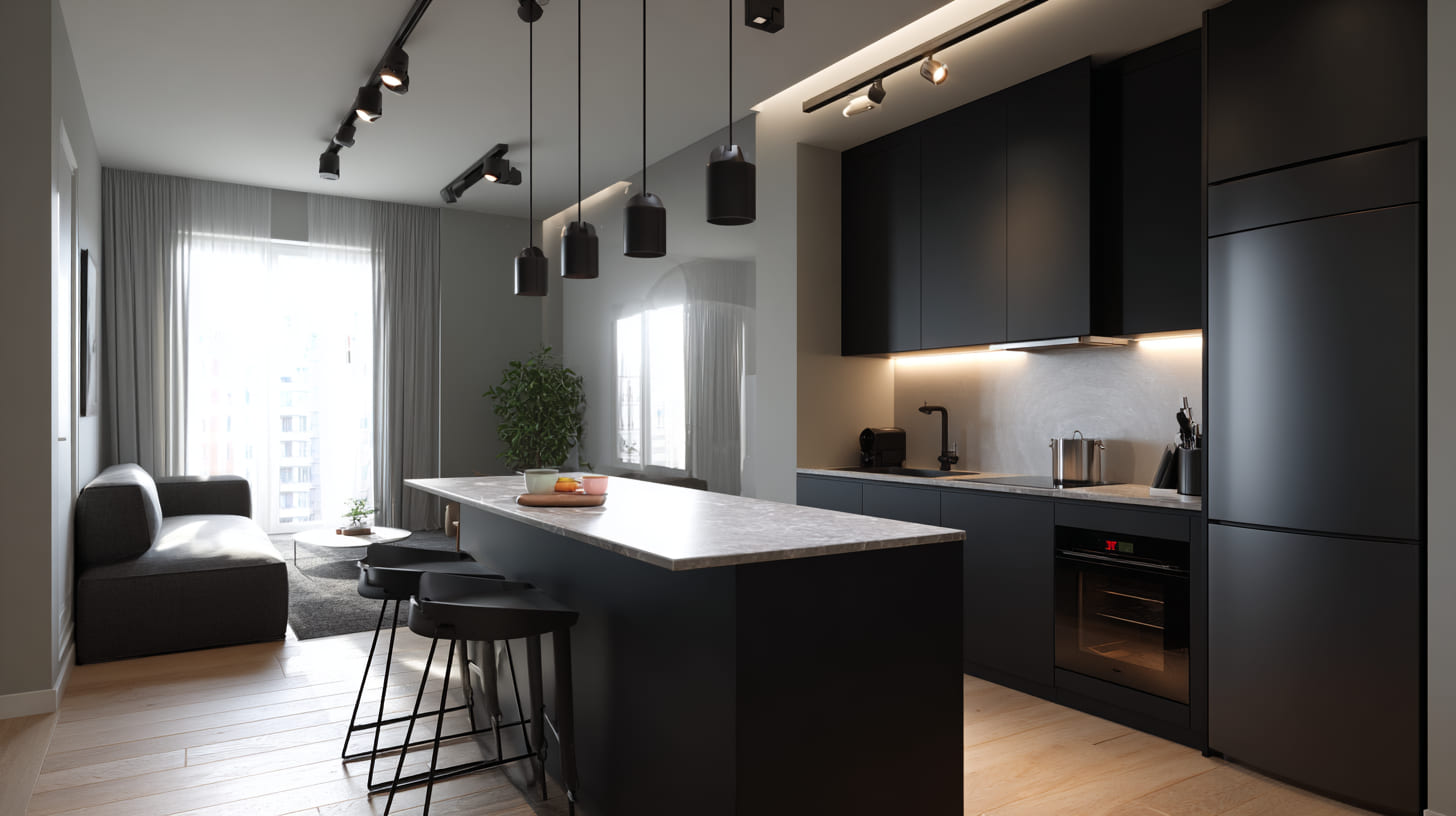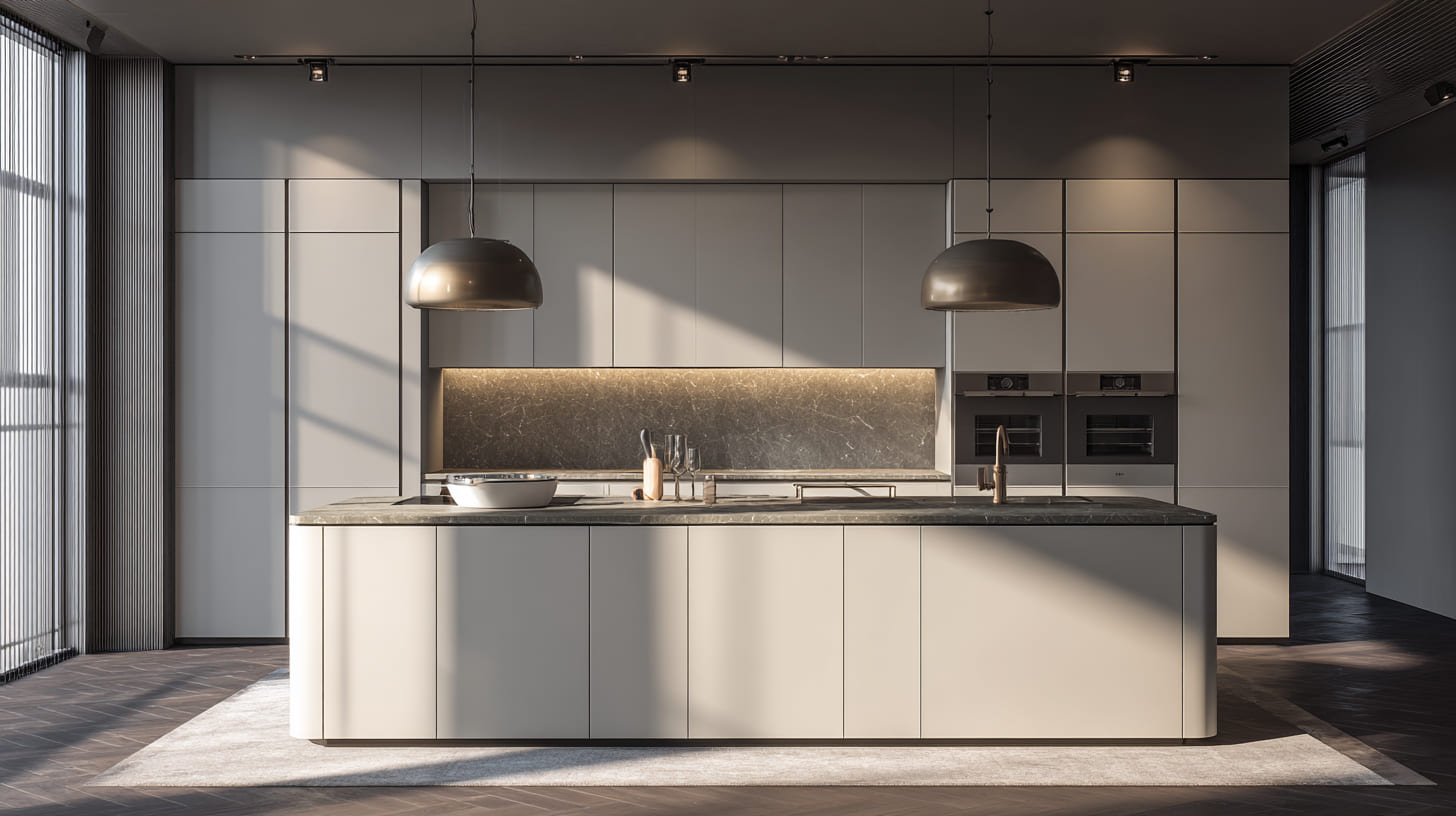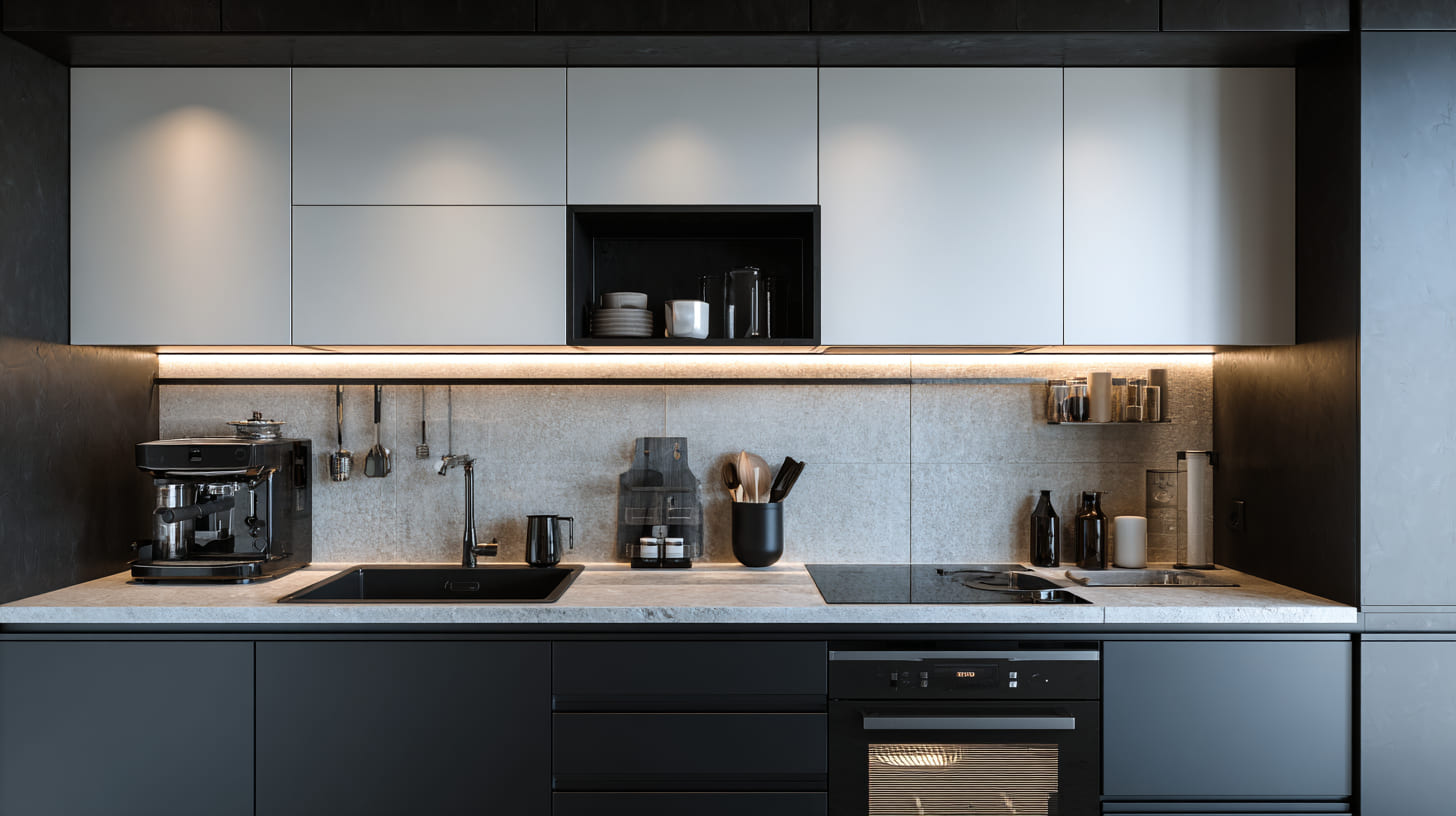Choosing the best flooring for kitchens is a crucial decision in any renovation. The kitchen is one of the busiest spaces in the home and requires flooring that combines functionality, durability and aesthetics.
Classic materials such as ceramic or modern options such as microcement are some of the alternatives, each offering specific properties. Below, we will explore the most prominent options, their advantages, disadvantages and how to choose the ideal floor for your kitchen.
Importance of Choosing the Right Flooring for Your Kitchen
The kitchen floor not only affects the overall appearance of the space, but also its functionality. It is essential to opt for a material that is water-resistant, easy to clean and able to withstand daily use.
In addition, a good floor should complement the kitchen design and adapt to the specific needs of your home. A proper choice can guarantee you a comfortable, safe and long-lasting space.
Types of Flooring for Kitchens: Advantages and Disadvantages
There are a variety of materials you can consider when purchasing the best kitchen flooring. Each option has unique features that can fit different styles and budgets. Below we present the most popular types of flooring:
Ceramic and porcelain floors
Ceramic and porcelain floors are classics in kitchens thanks to their durability and resistance. They are ideal for wet areas, as they do not absorb water and are very easy to clean. They are available in a number of designs, such as wood-effect images and modern finishes.
Advantages:
- High resistance to moisture and stains.
- Wide variety of designs and colors.
- Easy maintenance.
Disadvantages:
- Feeling of coldness.
- It can be slippery if it does not have a non-slip finish.
Natural wood or parquet floors
Natural wood brings warmth and elegance to any kitchen. Although it is not as resistant to moisture as other materials, modern protective treatments have improved its durability in humid environments, making this the best kitchen floor for lovers of classic and distinguished flooring.
Advantages:
- Warm and sophisticated aesthetics.
- It adds value and personality to the space.
Disadvantages:
- Less water resistance.
- Requires periodic maintenance.
Laminate flooring: affordable and versatile
Laminate flooring is an economical option that imitates materials such as wood or stone. It offers a balance between style and functionality, being scratch-resistant and easy to install.
Advantages:
- Affordable price.
- Variety of designs.
- Easy installation.
Disadvantages:
- Less water resistance than other materials.
- Shorter lifespan in high traffic areas.
Vinyl flooring: durability and design
Vinyl is one of the most popular choices for modern kitchens thanks to its water resistance, durability and versatile design. Plus, it's comfortable underfoot and easy to install.
Advantages:
- Resistant to moisture and stains.
- Varied designs that imitate materials such as wood or ceramic.
- Competitive price.
Disadvantages:
- May be less durable in high traffic areas.
- Some models may lose color over time.
Natural stone floors: elegance and durability
Natural stone floors, such as marble or granite, are synonymous with luxury and durability. They are ideal for elegant and high-end kitchens. If you are one of those who seek elegance and prestige, this will undoubtedly be the best kitchen floor for your home.
Advantages:
- Unique and sophisticated appearance.
- High strength and durability.
Disadvantages:
- High price.
- Requires specialized maintenance.
Microcement floors: a modern trend
Microcement is a contemporary option that stands out for its minimalist appearance and versatility. It is ideal for modern designs and integrated spaces.
Advantages:
- Visual continuity without joints.
- Water and stain resistant.
- Easy to customize.
Disadvantages:
- Specialized installation.
- May be prone to cracking if not applied properly.
Comparison of Kitchen Flooring Materials
To choose the best kitchen flooring, it is important to evaluate how the materials perform in key aspects. Before you decide, consider the following comparative points between elements to ensure it meets your expectations:
Water and stain resistance
This feature will save you long days of care and cleaning.
- Ceramic and porcelain: excellent resistance, ideal for kitchens with high exposure to humidity.
- Vinyl: durable and practical, perfect for homes with children or pets.
- Wood and laminate: less durable; requires caution with spills.
Easy cleaning and maintenance
Daily cleaning and long-term maintenance are crucial for any kitchen floor:
- Ceramic: Very easy to clean, just sweep and scrub.
- Vinyl: low maintenance.
- Natural stone: specific products to prevent damage.
Aesthetics and variety of designs
Each material brings a unique style to your kitchen:
- Wood: Warmth and authenticity.
- Microcement: Minimalist and modern.
- Vinyl and laminates: Designs that imitate other materials at low cost.
Value for money
Perhaps the most important feature you want to know when deciding on the best kitchen flooring:
- Ceramic and vinyl: good value for money.
- Natural stone: high quality, but expensive.
- Microcement: intermediate price with great visual impact.
What is the Most Recommended Flooring for Kitchens in Mallorca?
In Mallorca, where temperatures are usually warm and humidity can be an important factor, ceramic, porcelain and vinyl floors stand out as the most recommended options.
These materials offer high resistance to heat and humidity, while allowing for easy maintenance. Furthermore, their different designs allow them to adapt to any kitchen style.
Tips for Choosing the Best Flooring for Kitchens
Before choosing a material, carefully analyze your needs and preferences. Here are some key tips:
- Evaluate your needs: Consider factors such as frequency of use, traffic and exposure to moisture.
- Prioritise safety: choose materials with non-slip finishes to avoid accidents.
- Think about maintenance: choose a floor that is easy to clean and will stay in good condition over time.
- Consider your budget: compare options that offer good value for money.
- Seek professional advice: Consulting with experts can help you make the best decision.
At Tecnic Project we are specialists in Kitchen Renovations in Mallorca
Purchasing the best kitchen flooring is a fundamental step to ensure a functional and attractive space. Elements such as durable vinyl or the elegance of natural stone are some of the various options that adapt to every lifestyle.
Our team of professionals in Tecnic Project, specialists in kitchen renovations in Mallorca, are here to help you realize your vision. We design customized renovations that prioritize functionality, design and quality in every detail.
Contact us and discover how to turn your kitchen into a unique space that adapts to your needs and style!




